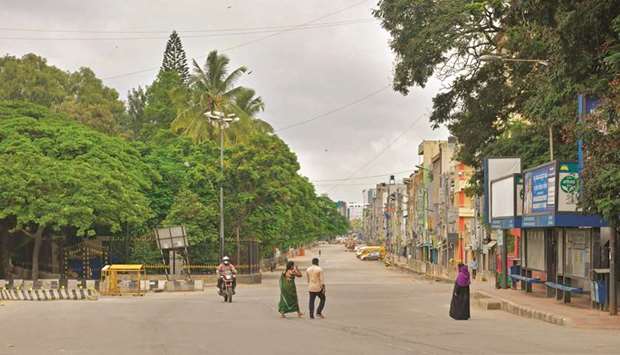Indian pharmaceutical company Zydus said yesterday that it had begun clinical trials on humans for a potential Covid-19 vaccine.
The first dosage of its plasmid DNA vaccine ZyCoV-D was administered to a human test subject yesterday, the company said in a statement.
The vaccine elicited a strong immune response during trials in animal species including mice, rats, guinea pigs and rabbits.
No safety concerns were observed.
“In rabbits, up to three times the intended human dose was found to be safe, well tolerated and immunogenic,” Zydus said.
The company said the DNA vaccine platform it had developed could be used to modify the vaccine in a couple of weeks in case the virus mutates to ensure that the vaccine still elicits protection.
India, along with several other countries, has been fast-tracking and supporting the development of a Covid-19 vaccine as the numbers of infections and deaths swell.
Currently India ranks third – after the United States and Brazil – among countries worst hit by the pandemic, with 936,181 infections and a death toll of 24,209 officially confirmed, according to the latest Health Ministry data.
Several regions in India have announced fresh lockdowns, including IT hub Bengaluru, as cases continue to spiral.
Nearly 30,000 new cases and 582 deaths were reported on Tuesday.
Meanwhile, People for the Ethical Treatment of Animals (Peta) has urged the government to stop the National Institute of Virology (NIV) from using “deadly tests” for a Covid-19 vaccine on monkeys.
Peta urged the NIV to leave wild animals in nature and instead use human-relevant and animal-free research methods as required by Indian law.
In a letter, the organisation said recent reports that the government of Maharashtra has approved capturing 30 wild monkeys for the NIV were alarming.
Animal tests are often misleading and time-consuming barriers to introducing life-saving drugs, it said adding governing bodies in India and around the world were increasingly moving towards modern, non-animal methods.
The US National Institute of Health confirms that more than 95% of all new drugs that are shown to be safe and effective in animal tests fail in human trials because they don’t work or are dangerous.
Covid-19 is largely thought to have first infected humans through wildlife at a Chinese wet market, it said.
“In fact, according to the World Health Organisation, over 60% of human pathogens are zoonotic (spread from animals to humans).”
Wild monkeys during capture and handling and in a laboratory setting present a significant threat of zoonosis, including herpes B, Kyasanur Forest disease, dengue, tuberculosis, simian immuno-deficiency viruses, and rabies, the Peta said.
“This pandemic presents an opportunity for India to set improved standards for testing and developing safe and effective new therapeutics that avoid cruel, misleading, and wasteful experiments on animals,” Peta India Science Policy adviser Dr Dipti Kapoor said.
“Peta India is asking the CPCSEA (Committee for the Purpose of Control and Supervision of Experiments on Animals) and NIV to meet the demand for accelerated research during this pandemic using human-relevant methods instead of tests on animals, which don’t advance human health.”
The request comes amid human clinical trials for a Covid 19 vaccine that have been initiated in the country with approximately 1,000 volunteers participating in the exercise for each of the two indigenous vaccine candidates – one developed by Bharat Biotech International Ltd in collaboration with the Indian Council of Medical Research and another by Zydus.
l The Tamil Nadu government has allowed a pilot project to study if the bacille calmette-guerin (BCG) vaccine will help reduce the mortality rate among elderly Covid-19 patients, Health Minister C Vijayabaskar said yesterday.
The National Institute for Research in Tuberculosis will start the pilot programme, the minister said in Chennai.
According to him, the BCG vaccine will be administered on a trial basis to people in the 60-95 age group.
The programme was aimed at reducing the Covid-19 mortality rate among them, he said.
Vijayabaskar said the BCG vaccine was found to boost innate immunity, which could lower morbidity and mortality rates.
The BCG vaccine could reduce the severity of Covid-19, avoid hospitalisation and mortality rate, he added.
Since no medicine was available for Covid-19 and also due to other positive factors, the Tamil Nadu government accorded the permission for the study when the Indian Council of Medical Research (ICMR) approached it, Vijayabaskar said.

People walk through an empty stretch of a road during a week-long lockdown to contain the surge of coronavirus cases, in Bengaluru yesterday.
